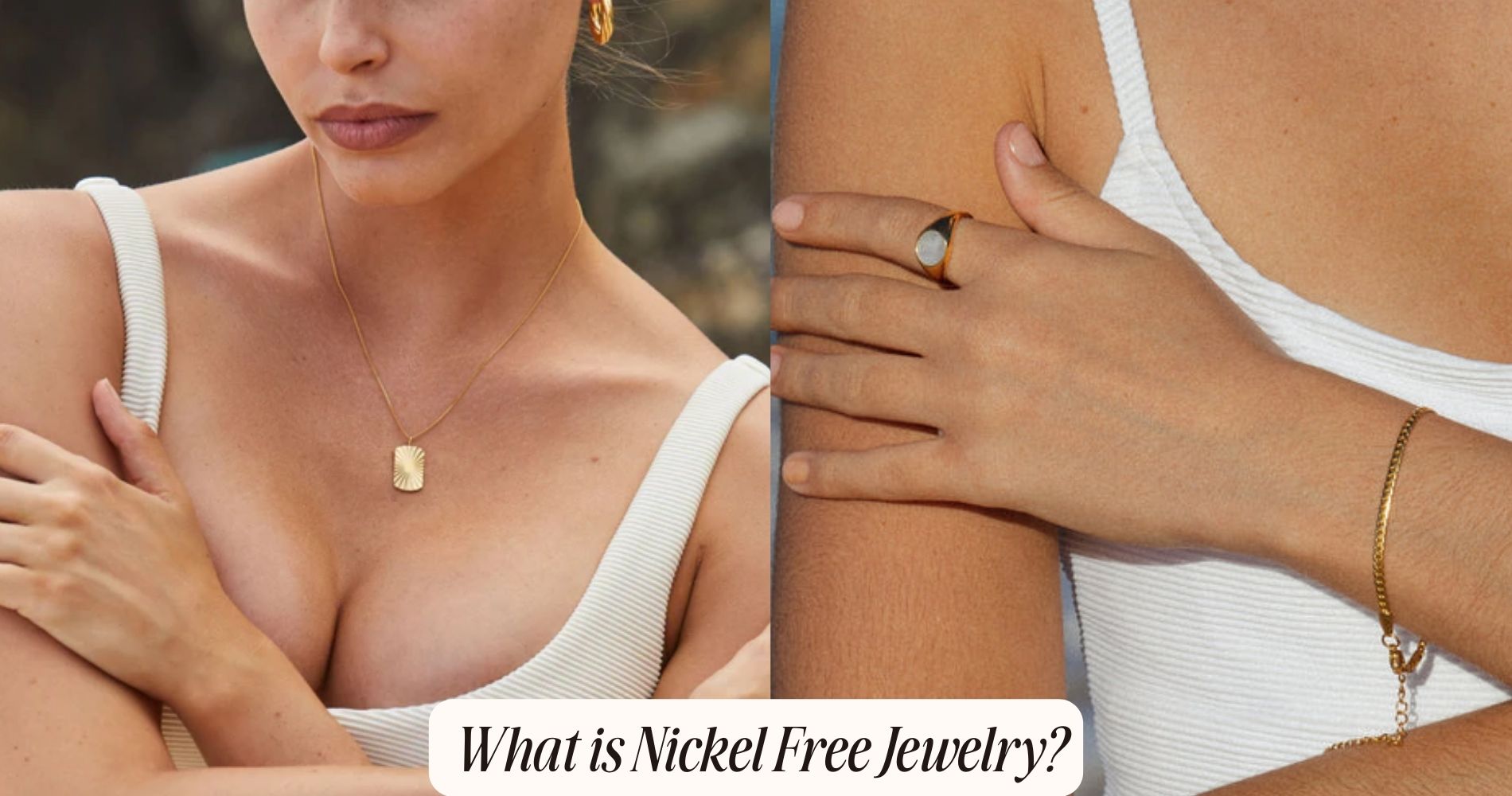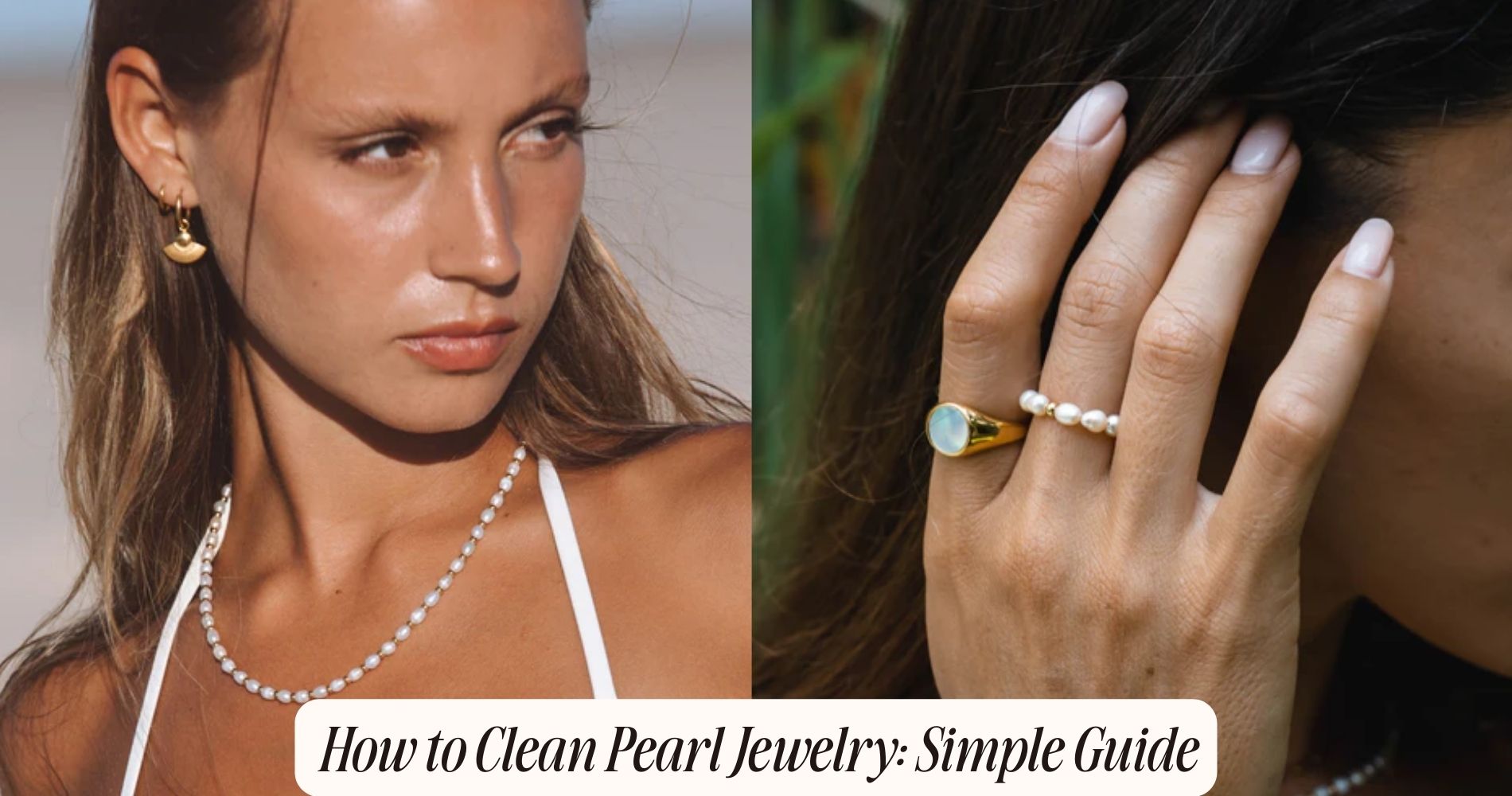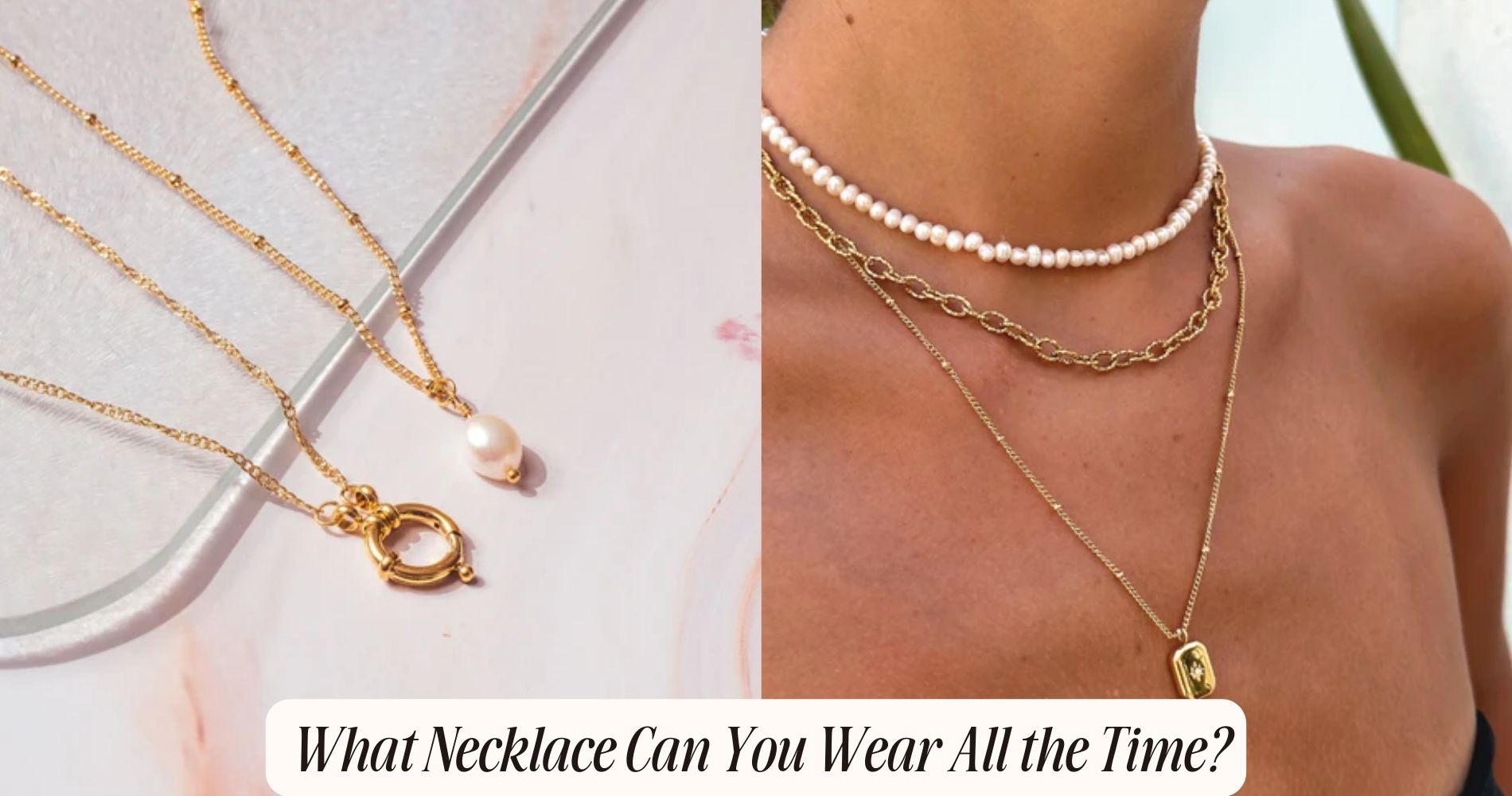
What is Nickel Free Jewelry?
Understanding Nickel Allergies
Nickel allergies, often manifesting as contact dermatitis, occur when your immune system reacts to nickel ions released from items like jewelry. When you have nickel sensitivity, your body identifies nickel as a harmful substance. This triggers an immune response, leading to allergic dermatitis.
The process begins when nickel ions penetrate your skin, binding with skin proteins. Your immune system then misinterprets these altered proteins as threats, causing an inflammatory response.
Understanding this mechanism is essential for managing and preventing nickel allergies. Your body's sensitization to nickel can develop over time through repeated exposure. Even brief contact with nickel-containing items can eventually result in allergic dermatitis.
Items such as earrings, necklaces, and watches are common culprits, releasing nickel ions that exacerbate nickel sensitivity.
Nickel sensitivity varies among individuals. Some may develop allergic reactions quickly, while others might take years of exposure. The key is recognizing and minimizing contact with nickel-releasing objects. Opt for nickel-free alternatives to reduce the risk of triggering your immune system.
Common Symptoms of Nickel Allergy
Often, the initial signs of a nickel allergy manifest as itchy, red rashes that develop at the contact site, indicating your skin's inflammatory response to the metal. This condition, known as contact dermatitis, can escalate if exposure continues. The affected area may become swollen, blistered, and even ooze clear fluid, which then crusts over as it heals. Recognizing these symptoms early is vital to prevent further complications.
You might also notice dry patches of skin that resemble eczema. These patches can be incredibly uncomfortable, causing constant itching and irritation. In severe cases, the skin might crack and bleed. It's not uncommon for people with nickel allergies to experience a burning sensation in the affected area, adding to the overall discomfort.
Over time, repeated exposure to nickel can lead to chronic dermatitis, where the skin becomes thickened and leathery. This condition can be particularly stubborn, requiring ongoing management and avoidance of nickel-containing items.
If you suspect you have a nickel allergy, seeking medical advice for proper diagnosis and treatment is crucial. Identifying and eliminating the source of nickel exposure is key to alleviating these troublesome symptoms.
What Is Nickel Free Jewelry?
To mitigate the discomfort and skin issues caused by nickel allergies, opting for nickel-free jewelry becomes a practical and effective solution. Nickel-free jewelry refers to pieces crafted without the presence of nickel, a common allergen known to cause dermatitis and other skin reactions. With increasing awareness about nickel allergies, many countries have implemented nickel bans, especially in jewelry manufacturing, to protect consumers.
When selecting nickel-free jewelry, you have several alternatives to ponder. Stainless steel, titanium, platinum, and certain grades of gold are popular choices. Stainless steel, particularly surgical-grade, is hypoallergenic and durable. Titanium is another excellent option due to its strength, lightweight nature, and non-reactive properties. Platinum, though more expensive, offers both hypoallergenic benefits and a lustrous finish. Additionally, gold that's 14k or higher, especially white gold alloyed with palladium instead of nickel, can be a safe choice.
It's essential to verify the composition of the jewelry you're buying. Reputable jewelers often provide detailed information about their products' materials, ensuring you can make an informed decision.
Benefits of Nickel Free Jewelry
You'll find nickel free jewelry offers significant benefits, including hypoallergenic skin protection that prevents irritation.
This type of jewelry reduces allergic reactions, making it a safer choice for those with sensitivities.
Moreover, it provides improved wear comfort, allowing you to enjoy your accessories without discomfort.
Hypoallergenic Skin Protection
Nickel-free jewelry greatly reduces the risk of allergic reactions, offering a reliable solution for individuals with sensitive skin. When you wear nickel-free pieces, you're not just avoiding a common allergen; you're choosing a form of skin protection that's both effective and considerate of your health.
Many nickel-free options come with a hypoallergenic coating, which acts as a protective barrier between your skin and the metal. This coating guarantees that any potential irritants are kept at bay, providing an extra layer of safety.
When metal jewelry contains nickel, it can cause contact dermatitis, a condition characterized by redness, itching, and inflammation. By opting for nickel-free alternatives, you minimize these risks significantly. These pieces often undergo rigorous testing to ensure they meet hypoallergenic standards, making them a trustworthy choice for daily wear.
The hypoallergenic coating not only enhances skin protection but also adds durability to the jewelry, ensuring it remains both beautiful and safe over time.
Reduced Allergic Reactions
Choosing nickel-free jewelry can greatly reduce the incidence of allergic reactions, offering a safer and more comfortable option for those with metal sensitivities. Nickel is a common allergen that can cause contact dermatitis, a condition characterized by itchy, red, and inflamed skin. By opting for nickel-free options, you're markedly lowering your risk of these adverse reactions.
Nickel regulation plays an important role in this situation. Many countries have strict guidelines on the permissible levels of nickel in jewelry, aimed at protecting consumers. For instance, the European Union's Nickel Directive limits the amount of nickel release to 0.5 micrograms per square centimeter per week. Adhering to such regulations can ensure that the jewelry you choose is less likely to cause an allergic reaction.
Medical advice often recommends those with metal sensitivities to avoid nickel-containing products altogether. Dermatologists suggest selecting jewelry made from hypoallergenic materials like stainless steel, titanium, or platinum. These metals are less likely to elicit an immune response, making them ideal for sensitive skin.
Improved Wear Comfort
Choosing nickel-free jewelry greatly improves wear comfort by eliminating the irritation and discomfort often caused by nickel allergies. When you wear jewelry containing nickel, your skin can react negatively, leading to redness, itching, and even blistering. Nickel-free options, however, substantially reduce these risks, offering a more pleasant wearing experience.
One of the key benefits of nickel-free jewelry is sweat reduction. Nickel can exacerbate sweat production, especially in warm climates or during physical activities. Excessive sweating not only makes your jewelry less comfortable to wear but also increases the likelihood of skin irritation. Nickel-free materials, such as surgical-grade stainless steel or titanium, help maintain a cooler, dryer skin surface, minimizing sweat accumulation.
Additionally, nickel-free jewelry prevents direct contact between your skin and the nickel ions, which are the primary culprits behind allergic reactions. This reduces the incidence of skin irritation, ensuring that your skin stays smooth and rash-free.
Types of Nickel Free Metals
When considering nickel free metals, you'll find that surgical stainless steel, titanium, and hypoallergenic sterling silver are excellent options.
Surgical stainless steel is durable and corrosion-resistant, while titanium offers both strength and lightweight properties.
Hypoallergenic sterling silver, often alloyed with other non-reactive metals, guarantees minimal allergic reactions.
Surgical Stainless Steel
Surgical stainless steel, known for its durability and resistance to corrosion, is a popular nickel-free metal often used in hypoallergenic jewelry. When you choose surgical stainless steel, you're opting for a material that offers significant durability benefits. This alloy is designed to withstand daily wear and tear without losing its shine or structural integrity. Its corrosion resistance assures that your jewelry won't tarnish or degrade when exposed to moisture, making it ideal for those who want long-lasting pieces.
In addition to its robustness, surgical stainless steel is also biocompatible, meaning it's safe for prolonged contact with your skin. This feature is essential for individuals with sensitive skin or metal allergies, as it minimizes the risk of irritation or adverse reactions. The metal's smooth surface also helps in preventing bacterial growth, contributing to better hygiene.
Furthermore, surgical stainless steel is relatively low-maintenance. You don't need to polish it regularly to keep it looking new. Simple cleaning with mild soap and water is usually sufficient to maintain its luster. By choosing surgical stainless steel, you're investing in jewelry that combines aesthetic appeal with practical, long-term benefits.
Titanium and Benefits
Titanium, known for its remarkable strength-to-weight ratio and hypoallergenic properties, stands out as a premier choice among nickel-free metals for jewelry. When you choose titanium, you're opting for a metal that's not only incredibly strong but also impressively lightweight. This unique combination makes titanium durability one of its most compelling attributes, ensuring that your jewelry can withstand daily wear and tear without losing its luster or shape.
Additionally, titanium's versatility in design is unmatched. Whether you're interested in a sleek, modern look or intricate, detailed patterns, titanium can be crafted to meet your aesthetic preferences. Its resistance to corrosion and tarnish further enhances its appeal, making it a low-maintenance option that retains its beauty over time.
This metal is also highly biocompatible, meaning it won't cause skin irritations or allergic reactions, an essential feature for anyone with sensitive skin.
In the world of nickel-free jewelry, titanium offers a perfect blend of practicality and elegance. Its impressive durability and versatile nature make it ideal for various types of jewelry, from wedding bands to everyday accessories. By choosing titanium, you're investing in pieces that are both beautiful and built to last.
Hypoallergenic Sterling Silver
Essential hypoallergenic sterling silver offers an excellent alternative for those seeking nickel-free jewelry with a classic, timeless appeal. Sterling silver is an alloy typically composed of 92.5% pure silver and 7.5% other metals, usually copper. This composition guarantees that the metal remains free from nickel, greatly reducing the risk of allergic reactions.
When selecting hypoallergenic sterling silver, you benefit from its renowned aesthetic and hypoallergenic properties. However, it's important to be mindful of silver tarnish, a natural process where the metal reacts with sulfur compounds in the air, leading to a dull, darkened appearance. Regular cleaning and proper storage can help mitigate this effect, preserving the jewelry's shine and longevity.
To make sure your sterling silver jewelry is hypoallergenic, always verify the composition and look for marks such as '925' or 'Sterling,' indicating its authenticity. Investing in high-quality sterling silver not only provides a safe option for sensitive skin but also offers durability and sophistication.
Popular Nickel Free Materials
Opting for jewelry made from nickel free materials guarantees you avoid allergic reactions and skin irritations. Ceramic jewelry is an excellent choice, offering durability and a sleek, polished finish. This type of jewelry is hypoallergenic and resistant to tarnish, making it ideal for everyday wear. Ceramic can be molded into various shapes and designs, offering both versatility and aesthetic appeal. Plus, its lightweight nature provides comfort throughout the day.
Wooden jewelry is another fantastic option. It's natural, eco-friendly, and hypoallergenic. Wooden pieces often showcase unique grain patterns and textures, adding an organic touch to your accessories. These pieces can be carved and stained in numerous ways, allowing for a broad range of styles. Additionally, wooden jewelry is generally lighter than metal, offering a comfortable fit for extended wear.
Other popular nickel free materials include titanium, medical-grade plastic, and certain stainless steels. Titanium is renowned for its strength and resistance to corrosion, making it a durable and safe choice. Medical-grade plastic is lightweight and flexible, perfect for sensitive skin. Stainless steel, particularly grades 316L and 304, is often used in surgical instruments, ensuring it's safe for those with nickel allergies.
How to Identify Nickel Free Jewelry
When you're shopping for nickel-free jewelry, it's essential to carefully examine the material composition and certification labels to ensure you're making a safe choice.
Start by scrutinizing product labels, as reputable manufacturers often indicate whether their products are nickel-free. Look for terms like 'nickel-free' or 'hypoallergenic,' but be cautious, as these terms aren't always regulated.
Next, investigate the materials used. Common nickel-free materials include surgical-grade stainless steel (316L), titanium, and certain grades of sterling silver. Additionally, platinum and high-karat gold (above 14K) are usually safe bets. Always verify the specific alloy composition, as some metals labeled as 'gold' or 'silver' can contain nickel as a filler.
Certification labels can also be a reliable indicator. Trustworthy brands often provide documentation or certification from recognized bodies, ensuring their jewelry meets stringent nickel-free standards. If you're unsure, don't hesitate to contact the manufacturer directly for detailed information.
Lastly, consider performing nickel testing on the jewelry. While this falls under the next subtopic, knowing that such methods exist can help you further ensure your jewelry is genuinely nickel-free when labels and certifications aren't enough.
Testing Your Jewelry for Nickel
To confirm that your jewelry is truly nickel free, conduct a nickel spot test using a specialized testing kit available online or at jewelry supply stores. These kits often include a testing solution containing dimethylglyoxime (DMG) and ammonium hydroxide.
To perform the nickel testing, clean a small area of your jewelry with a soft cloth to remove any oils or residues. Then, apply a drop of the DMG solution followed by a drop of ammonium hydroxide to the same spot. If the solution turns pink or red, your jewelry contains nickel.
For DIY methods, you can also use household items like vinegar and a small magnet. First, soak your jewelry in white vinegar for a few minutes to remove surface impurities.
Next, use a small magnet to test for ferromagnetic properties—nickel is magnetic, so if the jewelry sticks to the magnet, it likely contains nickel. Although this method isn't as precise as a chemical test, it can offer a quick preliminary check.
Caring for Nickel Free Jewelry
Having verified that your jewelry is nickel free, it's important to adopt proper care techniques to maintain its quality and longevity.
First, focus on cleaning techniques. Use a mild soap and warm water solution to clean your pieces. Gently scrub with a soft toothbrush, allowing you to reach intricate details without causing scratches. Rinse thoroughly and pat dry with a non-abrasive cloth to avoid water spots.
For deeper cleaning, consider using a specialized jewelry cleaner that's safe for nickel free metals. Always read product labels to guarantee compatibility. Ultrasonic cleaners can also be effective but use them sparingly and only for sturdy pieces to prevent damage.
Next, pay attention to storage tips. Store your nickel free jewelry in a cool, dry place to prevent tarnishing. Use individual soft pouches or lined jewelry boxes with separate compartments to avoid contact between pieces, which can lead to scratches and dents. Anti-tarnish strips or silica gel packets placed in your storage area can help absorb moisture and maintain the jewelry's shine.
Conclusion
To sum up, opting for nickel free jewelry is crucial for preventing allergic reactions and preserving skin health. By grasping nickel allergies and recognizing nickel free metals, you can make well-informed decisions.
Seek out reputable sellers, utilize testing methods, and care properly for your pieces to guarantee longevity. Embrace nickel free options for both their health benefits and stylish appeal, ensuring you enjoy your jewelry without discomfort or irritation.

























Leave a comment
This site is protected by hCaptcha and the hCaptcha Privacy Policy and Terms of Service apply.